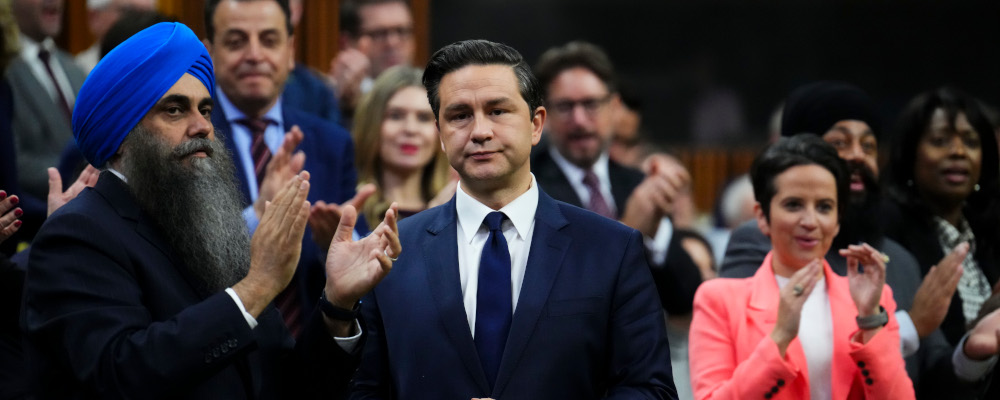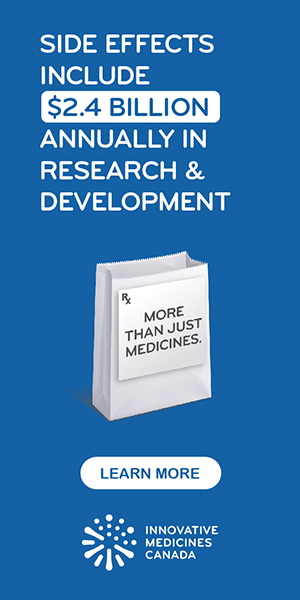By the time you have finished reading this, Pierre Poilievre and the Conservative Party of Canada may have figured out that making Canadians the freest people on earth doesn’t involve the state assigning hall monitors to govern the internet.
Because prior to this week’s launch of the government’s Online Harms Act, there was considerable evidence to suggest the Tories don’t understand the consequences of internet regulation any better than their hapless opponents in government.
The Conservatives, as we speak, are backers of Independent Senator Julie Miville-Dechene’s private member’s Bill S-210. Its intent, like so many pieces of legislation, is virtuous, as it is trying to protect children from access to online pornography. But the road to regulatory hell is paved with good intentions, and the legislation is so clumsily constructed as to pose significant threats to privacy and free expression.
Experts such as David Fraser, a Halifax privacy lawyer and law school lecturer, describe it as a “clear and present danger to a free and open internet.”
The internet advocacy group Openmedia says “If S-210 is passed without major fixes, Canadians could see most internet services require us to provide a government-issued ID to log on, have our faces repeatedly scanned and stored in leaky databases to simply live our online lives.”
Similar critiques have been leveled by legal experts such as the University of Calgary’s Emily Laidlaw and the University of Ottawa’s Michael Geist, the latter of whom called it the “most dangerous Canadian internet law you’ve never heard of.”
And while we were pondering how Conservative support for the most privacy-invading, freedom of expression-suppressing online legislation yet was going to help any of us “take back control” of our lives, Poilievre declared a future Conservative government would ensure people less than 18 years of age would not be able to access pornography online.
That was quickly followed by a caveat-laced statement issued by Poilievre spokesman Sebastian Skamski, who was clarifying that Conservatives are opposed to imposing a digital ID or other measures that would limit adults’ online freedom—even though they are currently supporting, along with the NDP and Bloc, a bill that would do just that.
Whew.
So, just when you thought it was the Liberals who were—rightfully—going to be the ones wearing the crown of internet freedom crusher come the next election, the Conservatives looked like they wanted to share the title. And they appeared to be doing so by enthusiastically joining the “let’s expand the power of the state over the most democratizing, freedom-friendly invention since the printing press” crowd.
Hopefully, the response to the Online Harms Act will be more nuanced.
Children should not be exposed to pornography. Numerous studies have shown it has a deleterious impact, including impairment of the ability to form rewarding intimate relationships and the objectification of women. No doubt the isolation of the pandemic left many young men more capable of forming a rewarding relationship with their laptop than with the girl next door.
With that in mind, parents should be equipped with every tool possible to help them protect their children. And, currently, they can restrict access on the devices they own to ensure their kids aren’t exposed to porn. Good enough?
Maybe not. Children, particularly as teenagers, figure out ways to get around barriers just like they figure out ways to share some contraband vodka in the park on a Saturday night. But that doesn’t mean we don’t recognize that there are certain things in this world for which access needs to be restricted to grownups. Or that we give up trying to keep them on course.
Nor does it mean we need agents of the state putting the nation at risk of data breaches (two words here: Ashley. Madison.) and identity theft by having to flash credit cards, driver licenses, and, inevitably, facial and voice recognition IDs to watch movies like 9 ½ Weeks on the internet.
So, Conservatives, here’s some advice on how to do the right thing the right way.
Leave legal content on the internet alone. By all means, ensure the Criminal Code is enforced, but do not, under any circumstances, put some puffed-up public servant in charge of patrolling the online world. The state has no business in the WiFi of the nation.
Second, empower parents and families with the equipment they need to control their household’s internet access as they see fit and work with the people who really understand technology to do so.
For instance, if your bank or credit card company can send you an alert when there is unusual activity on your account, it seems reasonable to expect one’s Internet Service Provider could be of similar assistance. I am not an engineer and haven’t checked with one, but it is important for policy makers to search for solutions of this nature.
So, at least to illustrate a point, would it not make perfectly sensible policy to ensure that if, when it comes to internet service, families were given the option of choosing to be alerted any time a device connected via their account accesses an adults-only website. Sites of that nature could be, by regulation, watermarked in the same fashion as those embedded to identify images created by generative AI. Would that not serve the same purpose? Achieve the same goal as the legislation the Conservatives are currently backing? Would such a solution not respect privacy, individual liberty, and the Charter of Rights and Freedoms in ways Bill S-210 does not?
If the Conservatives genuinely want to give us back control of our lives and make us the freest people on earth, they could start by stepping back from their recent alliance with Big Government solutions and instead find ways to help individuals take control of their lives by managing what comes into their homes.
Recommended for You

Canada added 950,000 government jobs in past decade, outpacing private sector job growth: Study

Trump’s new national security strategy predicts ‘three bully world’ that brings back 19th-century spheres of influence, expert warns

‘A declaration of hemispheric dominance’: Is Trump’s new security doctrine good news or bad news for Canada?

The autonomy trap: Why AI’s ‘chain of command’ still needs humans





